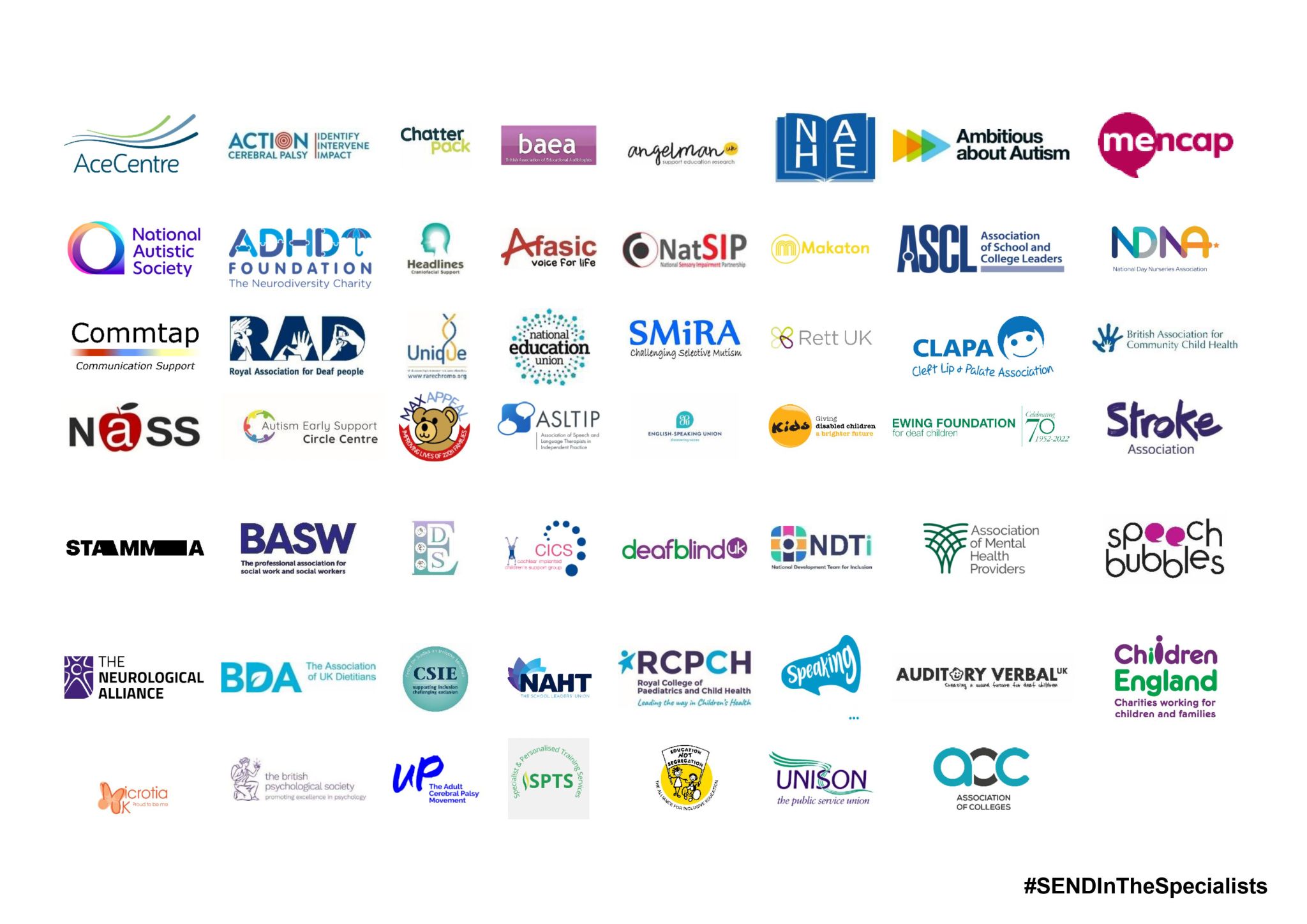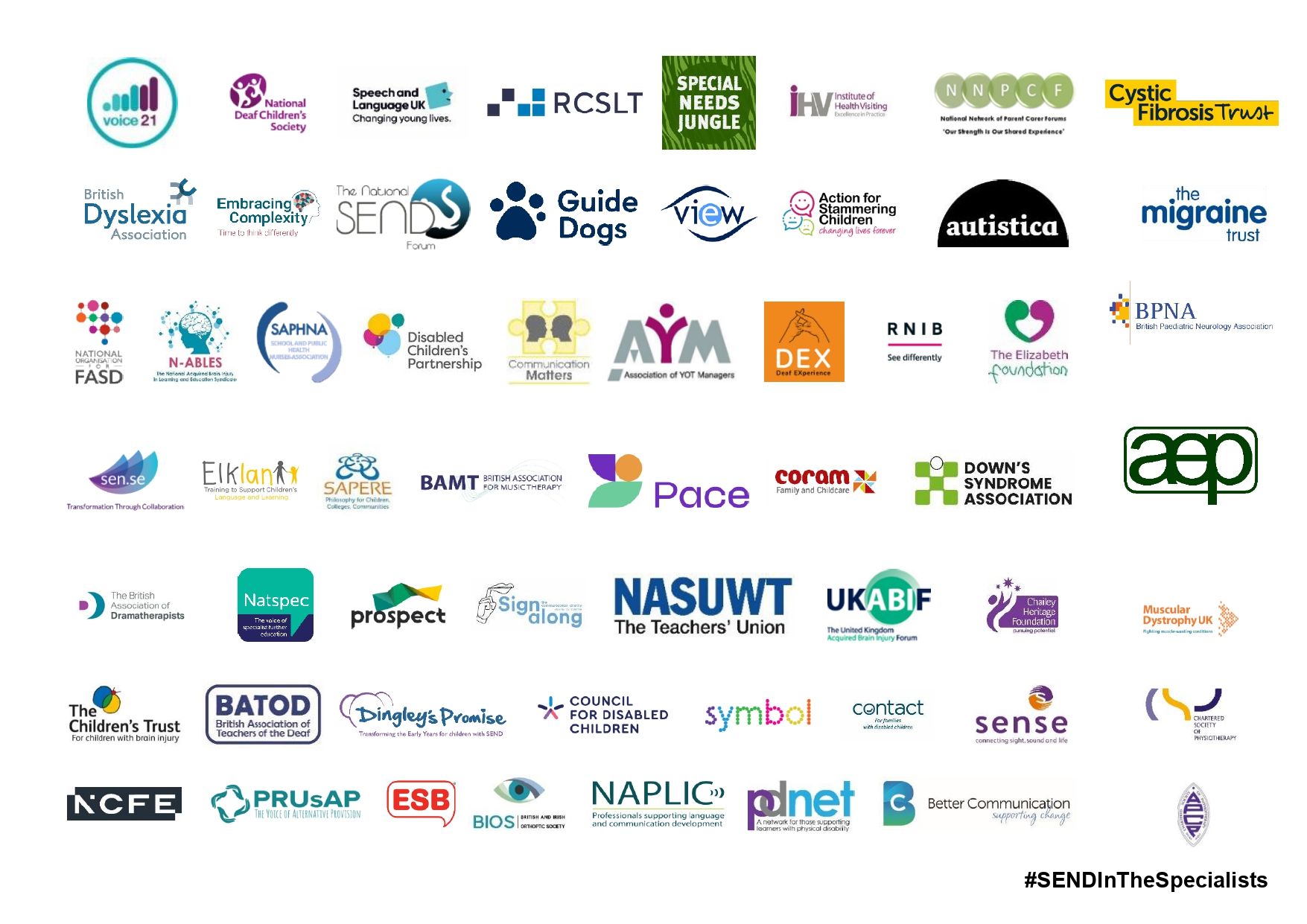An open letter calling for investment in the specialist workforce
With the UK Government set to release their SEND and AP Improvement Plan by the end of the year, this is a prime opportunity to campaign for this plan to address urgent gaps in the specialist workforce. Association of Mental Health Providers has joined a coalition of over 110 charities, royal colleges, professional bodies, professional associations, trade unions, parents and carers and others who have written to the ministers in charge of the SEND Review asking them to invest in the specialist workforce for children and young people.
Together, we have urged them to make sure there will be adequate specialist professionals to help children thrive both in the present and in the future. Kathy Roberts is one of the many signatories in her capacity as CEO of The Association.
Read the full letter below:
Dear Secretaries of State,
Investing in the specialist workforce for children and young people
We’re writing to you as a broad coalition of over 110 charities, royal colleges, professional bodies, professional associations, trade unions, parents and carers and others who want the very best for children and young people – including those with special educational needs and disabilities (SEND). Firstly, we’d like to congratulate you both on your new positions. We look forward to working with you and your ministers to ensure that all children and young people can achieve their potential, both at school and in life, including through ensuring that those with SEND can access the support they and their families depend on.
Why the specialist workforce matters
As we’re sure you agree, ensuring children, young people and their families can access the specialist support they need from expert professionals is essential at every stage of their lives – from the early years, throughout their school lives, and, for those over 16, in colleges. For mainstream educational settings to be truly inclusive, teachers must have access to a broad range of specialist education, health and care professionals to ensure the best outcomes for children and young people, including those with SEND. Specialist settings must also be able to recruit the expert staff they need to meet the needs of their pupils.
As detailed in the appendix to this letter, a wide range of professionals provide direct support to children and young people and families, in addition to helping teachers to develop their knowledge and skills. They also help identify needs early, giving children the best possible start to education and reducing the demand for more expensive support later in life, as well as facilitating more children to be supported in mainstream schools.
The specialist workforce also plays a vital role in keeping more children in school. Through developing the skills of teachers to meet the needs of more children, they can reduce the demand for additional support that has an impact on staff capacity and resources.
As such, the specialist workforce will play an important role in supporting your ambitions in a range of policy areas, particularly those in the SEND Review.
Current challenges in accessing the specialist workforce
Across our sectors, we are seeing a variety of concerning issues impacting the specialist workforce, including:
● an insufficient number of specialists being trained to meet demand;
● a falling number of specialists, including through them failing to be retained and supported to further
develop their specialisms, with some leaving the public sector;
● an increased demand for support in general and in more complex cases in particular; and
● responding to the pressures of COVID-19 which has exacerbated pre-existing demands on the specialist workforce and increased waiting times to access them.
This is an urgent issue. Without access now to the specialist support they need, children and young people, including those with SEND, will be at increased risk of poorer educational outcomes. In addition, the children, young people and families we work with tell us about the negative impact of not being able to access support. They tell us it affects their education, mental health and wellbeing, home and social life, employment prospects and life chances.
Implications for the SEND Review
This has important implications for the SEND Review. The Government’s aim to ensure young people with SEND have the right support, in the right place, at the right time, is a welcome one. We share it.
However, we struggle to see how this ambition will be achieved without a clear workforce plan to ensure there are sufficient specialist professionals to help those working with children to identify needs and secure support both now and in the future.
We are calling on the Government to clearly set out how the forthcoming SEND and AP Improvement Plan will address gaps in the specialist workforce.
This will also require the implementation of various Government policies to be aligned, for example the Schools White Paper and the SEND Review.
Unless urgent action is taken now on workforce planning, we are also at risk of further challenges in accessing the specialist workforce. The long-term future of the specialist workforce must be secured through proper workforce planning so that children and young people now, and in the future, can access the support they need to thrive.
It’s also essential that children and young people with SEND from disadvantaged backgrounds, and are experiencing inequitable outcomes, are a major focus in the Government’s plans and receive targeted action.
We look forward to hearing from you and continuing to engage with you, your ministers and officials on this topic constructively. We’d be happy to arrange a meeting between yourselves and representatives of our group to discuss this issue further.
Yours sincerely,


